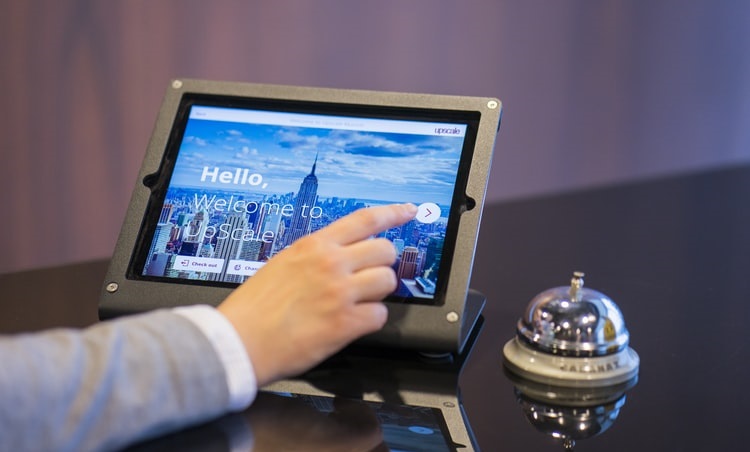In the dynamic and competitive world of hospitality, software solutions have become indispensable for managing hotel operations efficiently. From reservations to guest services, various software systems streamline processes, enhance guest satisfaction, and boost profitability.
This article explores the different types of software used in hotels, outlining their features and benefits.
1. Property Management Systems (PMS)
A Property Management System (PMS) is central to hotel operations, handling essential functions like reservations, front desk operations, and billing.
Key Features
- Reservation Management: Manages bookings from multiple sources, including direct and online travel agencies (OTAs).
- Front Desk Operations: Facilitates guest check-ins and check-outs, room assignments, and key card issuance.
- Housekeeping Management: Tracks room status, schedules housekeeping, and manages maintenance requests.
- Billing and Invoicing: Automates billing processes, generates invoices, and processes payments.
Benefits
- Centralizes operations for improved efficiency.
- Enhances guest experience through streamlined check-in/check-out processes.
- Reduces human errors in reservation and billing processes.
2. Channel Management Software
Channel Management Software helps hotels manage their online distribution channels, ensuring consistent room availability and pricing across all booking platforms.
Key Features
- Real-Time Updates: Synchronizes room availability and rates in real-time across all channels.
- Inventory Management: Prevents overbooking by managing room inventory effectively.
- Reporting and Analytics: Provides insights into booking trends and channel performance.
Benefits
- Maximizes occupancy rates by efficiently managing room inventory.
- Reduces the risk of overbooking and double-booking.
- Increases visibility on multiple booking platforms, leading to higher revenue.
3. Revenue Management Software (RMS)
Revenue Management Software helps hotels optimize their pricing strategies to maximize revenue by analyzing demand, competition, and market conditions.
Key Features
- Dynamic Pricing: Adjusts room rates in real-time based on demand and supply.
- Forecasting: Predicts future demand and revenue based on historical data and market trends.
- Competitor Analysis: Monitors competitor pricing and market positioning.
Benefits
- Increases revenue through optimized pricing strategies.
- Provides data-driven insights for better decision-making.
- Enhances competitiveness by aligning pricing with market conditions.
4. Customer Relationship Management (CRM) Software
CRM Software focuses on managing and enhancing guest relationships, aiming to improve guest satisfaction and loyalty.
Key Features
- Guest Profiles: Maintains detailed profiles of guests, including preferences and stay history.
- Personalized Communication: Automates personalized emails and messages to guests.
- Feedback Management: Collects and analyzes guest feedback to improve services.
Benefits
- Builds stronger relationships with guests through personalized experiences.
- Increases repeat bookings by enhancing guest satisfaction.
- Provides valuable insights into guest preferences and behavior.
5. Point of Sale (POS) Systems
POS Systems manage transactions at various outlets within a hotel, such as restaurants, bars, and gift shops.
Key Features
- Transaction Management: Processes payments for services and products.
- Inventory Tracking: Manages stock levels and inventory for outlets.
- Reporting: Generates reports on sales and revenue.
Benefits
- Streamlines transactions and improves service efficiency.
- Enhances inventory management to reduce waste and shortages.
- Provides detailed sales data for better financial management.
6. Housekeeping Management Software
Housekeeping Management Software optimizes housekeeping operations, ensuring rooms are cleaned and maintained efficiently.
Key Features
- Task Assignment: Assigns cleaning tasks to housekeeping staff based on room status.
- Status Tracking: Tracks the cleaning status of rooms in real-time.
- Inventory Management: Manages housekeeping supplies and inventory.
Benefits
- Improves efficiency in housekeeping operations.
- Ensures rooms are cleaned and ready for guests promptly.
- Enhances communication between housekeeping and front desk.
7. Maintenance Management Software
Maintenance Management Software helps hotels manage maintenance tasks and ensure that all facilities are in good working condition.
Key Features
- Work Order Management: Creates and tracks maintenance work orders.
- Preventive Maintenance: Schedules regular maintenance tasks to prevent issues.
- Asset Management: Tracks hotel assets and their maintenance history.
Benefits
- Reduces downtime and repair costs through preventive maintenance.
- Ensures a safe and well-maintained environment for guests.
- Enhances operational efficiency by tracking and managing maintenance tasks.
Frequently Asked Questions (FAQ)
1. What is a Property Management System (PMS)?
A Property Management System (PMS) is software that manages daily hotel operations, including reservations, check-ins and check-outs, billing, and housekeeping.
2. How does Channel Management Software benefit hotels?
Channel Management Software helps hotels manage room availability and rates across multiple booking platforms, preventing overbooking and maximizing occupancy.
3. What is the role of Revenue Management Software in hotels?
Revenue Management Software optimizes room pricing strategies based on demand and market conditions to maximize revenue.
4. Why is CRM Software important for hotels?
CRM Software is crucial for managing guest relationships, enhancing guest satisfaction, and increasing repeat bookings through personalized experiences.
5. How do POS Systems support hotel operations?
POS Systems streamline transactions at hotel outlets, manage inventory, and provide detailed sales reports for financial management.
6. What functions does Housekeeping Management Software perform?
Housekeeping Management Software assigns cleaning tasks, tracks room status, and manages housekeeping inventory to ensure efficient operations.
7. What are the advantages of Maintenance Management Software in hotels?
Maintenance Management Software helps reduce downtime through preventive maintenance, track work orders, and ensure a safe and well-maintained environment for guests.
Conclusion
Incorporating various types of software into hotel operations is essential for enhancing efficiency, guest satisfaction, and profitability. By leveraging these tools, hoteliers can streamline processes, optimize revenue, and provide exceptional guest experiences, ensuring their establishment stays competitive in the ever-evolving hospitality industry.
Sufiya Begom is a Passionate Digital Innovator and the Visionary Founder of the Dynamic Platform, Digital Pro Info. With a deep-rooted enthusiasm for digital technologies, Sufiya has built a comprehensive space that offers valuable insights into digital products, reviews, guides, software, and sales, empowering individuals to make informed decisions in the ever-evolving digital landscape.



